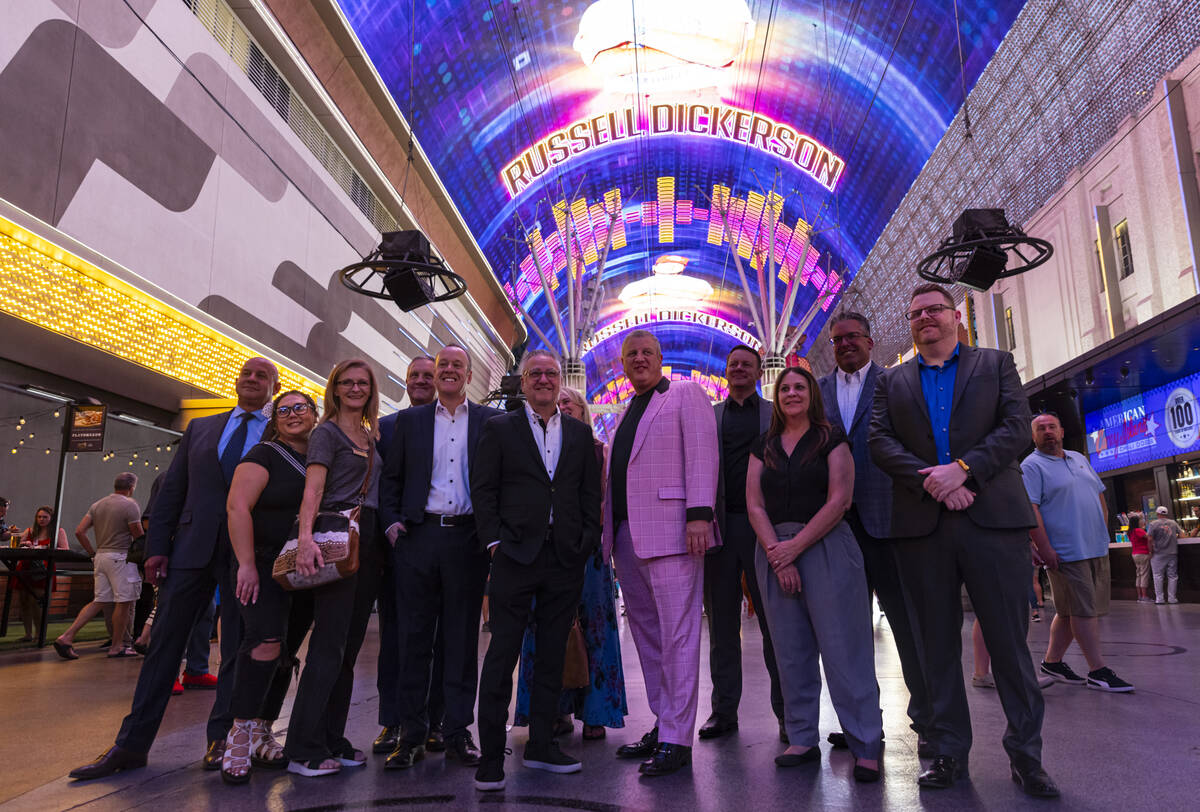What Are They Hiding? Police lean on threat center exemption to deny records
Las Vegas police are denying public information on safety plans for recent events using a governor’s executive order, but the Las Vegas Review-Journal’s chief legal official said that was a violation of open records laws.
Last October, the Review-Journal sought records related to the public safety plans for the Neon City Festival, a new food and entertainment event spread across several city blocks. The festival, designed to draw visitors to Fremont Street-area casinos during the Formula One Grand Prix weekend, billed itself as a rare free, all-ages and ungated event in downtown Las Vegas.
The Metropolitan Police Department denied the newspaper’s request Oct. 31, citing a 2020 executive order from then-Gov. Steve Sisolak that declared “certain public safety documents confidential and not subject to subpoena, discovery or inspection by the general public.”
The order determined disclosure of categories of documents and information can be confidential. They included specific emergency response plans, details that reveal the critical infrastructure of energy buildings and other areas of exemption.
“Public disclosure of certain information regarding security vulnerability assessments create a substantial likelihood of compromising, jeopardizing or otherwise threatening the public health, safety, or welfare of Nevadans,” part of the executive order said.
Determined to understand the extent of the order’s use in denials, in March the Review-Journal again requested the public safety plans for several past and upcoming music festivals in downtown Las Vegas, including Neon City Festival, New Year’s Eve and the Life is Beautiful: A Big, Beautiful Block Party event — all in 2024 — and the upcoming Holo Holo Music Festival in late April.
Metro, again, denied the request. The March 13 denial called those records “confidential by law.” It cited Sisolak’s executive order, as well as state law that makes records from the Nevada Threat Analysis Center confidential. The denial also said that the Southern Nevada Counter Terrorism Center — or SNCTC, a multi-agency fusion center not mentioned in that same law — and the Nevada Threat Analysis Center “function in coordination with one another.”
“SNCTC is designated as the ‘Primary Fusion Center’ for the State of Nevada. (Nevada Threat Analysis Center) is a ‘Recognized Fusion Center,’ ” according to the denial letter signed by the Public Records Unit.
Violation of records laws
Ben Lipman, chief legal officer at the Review-Journal, said the denial relied on statutes that detailed a different organization than the one it was trying to exempt. The local counterterrorism center is a separate entity from the Nevada Threat Analysis Center that is covered by law.
“The SNCTC and Metro are separate governmental entities from the NTAC. Therefore, a statute that applies only to the NTAC does not allow the SNCTC or Metro to withhold records, and doing so violates the NPRA,” he said in an email.
“A statute that says NTAC does not have to provide (or, even, is prohibited from providing) records to the public does not apply to LVMPD or, if it is a standalone entity, SNCTC,” Lipman explained. “It is a violation of the (Nevada Public Records Act) for LVMPD/SNCTC to withhold records simply because similar records or even exact copies of the records can be withheld by another governmental entity.”
Lipman also said the denial violates a 2020 Nevada Supreme Court decision, Clark County Office of Coroner/Medical Examiner v. Las Vegas Review-Journal.
“The Nevada Supreme Court has made clear that any governmental entity that has copies of records must produce them regardless of whether another governmental entity also has copies and regardless of whether a statute would allow that other governmental entity to withhold its own copies,” he said.
Metro declined to comment beyond the denial.
A spokesperson for current Gov. Joe Lombardo, who was previously Clark County sheriff, said the Republican governor supported his predecessor’s executive order.
The “What Are They Hiding?” column was created to educate Nevadans about transparency laws, inform readers about Review-Journal coverage being stymied by bureaucracies and shame public officials into being open with the hardworking people who pay all of government’s bills. Were you wrongly denied access to public records? Share your story with us at whataretheyhiding@reviewjournal.com.
Contact McKenna Ross at mross@reviewjournal.com. Follow @mckenna_ross_ on X.



















